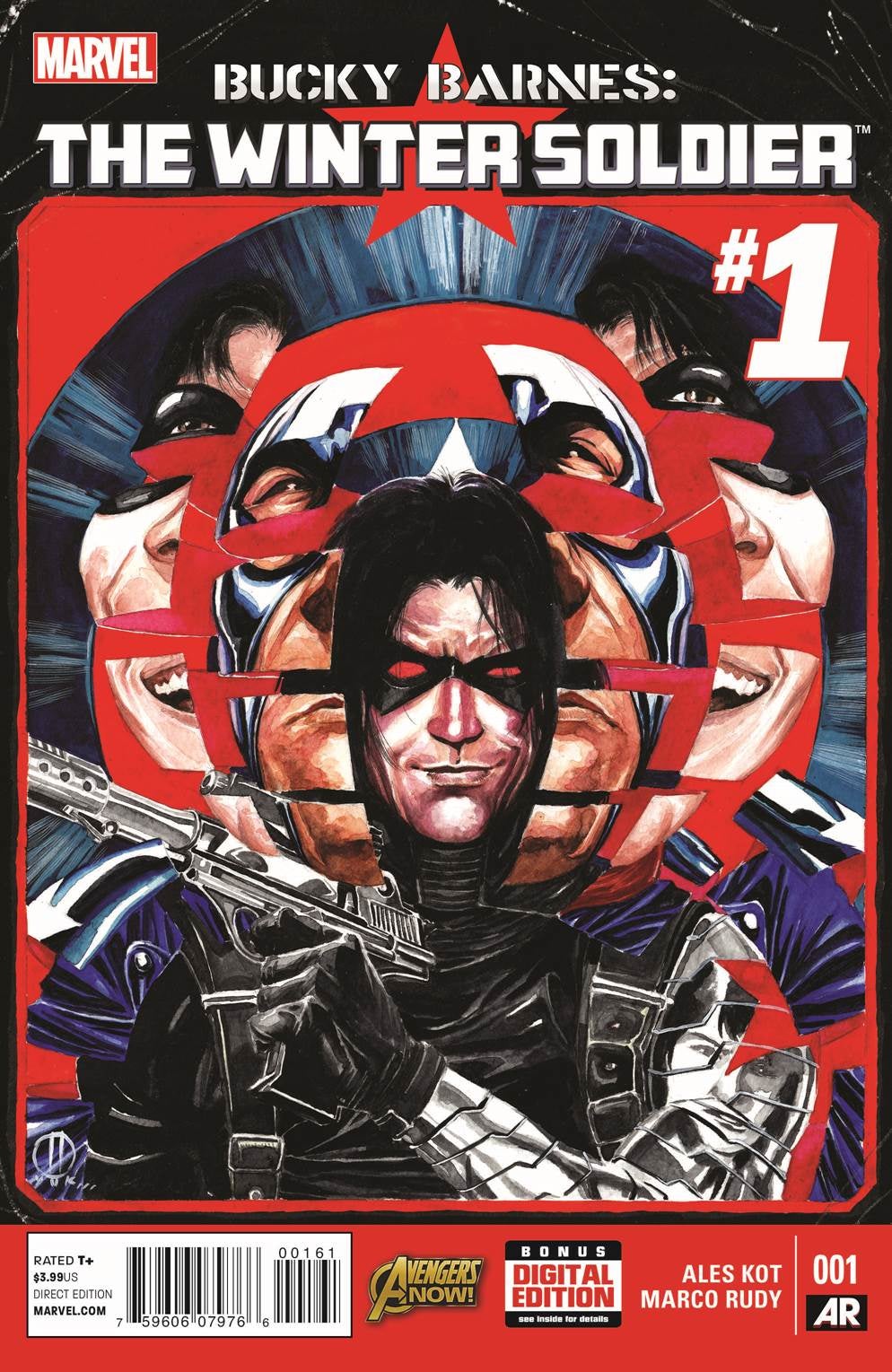
Ales Kot is now writing a third series focused on the spy genre and, like Zero and Secret Avengers, it looks to be a must-read. Kot has found fertile ground in spying, using the ugliness that comes with it to explore ideas about nature versus nurture, empathy, and violence. Although there are some thematic and genre connections between all three series, Bucky Barnes: The Winter Soldier #1 is a completely unique and authentic comic.
Videos by ComicBook.com
Much of that feeling comes from Kot’s collaborator Marco Rudy. Rudy’s work in Bucky Barnes is dreamlike. As the comic shifts between a variety of locations and moods, Rudy’s art morphs with it. The opening sequence focuses heavily on an exchange between two characters, placing readers in Bucky’s boots. This becomes all the more effective when a third party is introduced and the next page separates itself from what has come before, emphasizing the change in narrative. Kot includes a lot of material in these twenty pages and Rudy works to give each sequence its own unique flair. All of them are connected by the same dreamlike quality though. Rudy has mentioned being influenced by the author Phillip K. Dick and that shows in these pages. They hum with an energy similar to 2001: A Space Odyssey as a sort of sci-fi acid trip.
Rudy’s layouts are reminiscent of J.H. Williams III. He challenges readers and himself with pages that move in a wide variety of directions and defy the standard top-to-bottom, left-to-right orientation of reading. Pages are organized in collapsing circles and fading drops of water. His work on Bucky Barnes demands that attention be paid to it; it is a comic that you sit with and study, not something you flip through briefly.
Lettering plays a big role in the effectiveness of that work and Clayton Cowles (whose work appears in many Marvel comics) should be applauded. He organizes speech bubbles and text boxes to effectively guide readers through Rudy’s compositions. A diverse array of text elements are at play as well, ranging from location markers to foreign languages. Cowles visually identifies each unique origin of text, helping readers quickly identify them and understand the multi-faceted narration.
Kot’s exploration of Bucky Barnes as a character is already proving to be interesting. He is shown to be both a capable and merciless killer, but reveals a soft spot only a few pages later. There is a complexity to his personality and speech that comes from his ludicrously complex background. Kot is ready to exploit this and explore what happens to a person whose entire life has been steeped in violence.
Bucky Barnes is a surprisingly funny book too. Like in Secret Avengers, Kot plays on the innate silliness and fantastical nature of the Marvel universe and embraces it. He includes a great deal of material in this issue and loves all of it. The concept of Thai-Skrull fusion cuisine is tossed out casually at a diner on Mars. It’s a minor line, but one that shows Kot isn’t taking the material of this comic too seriously. Bucky also makes a not too subtle jab at US foreign policy at the end of the opening sequence, and it is laugh out loud funny. In addition to being a meditation of some complex themes, it appears that Bucky Barnes will also be a very enjoyable comic.
There’s a lot to like in the debut of Bucky Barnes: The Winter Soldier. Every collaborator involved is bringing their best work to the comic and it shows. Together, they are telling a story that is unlike anything else on the stands.
Grade: A-








